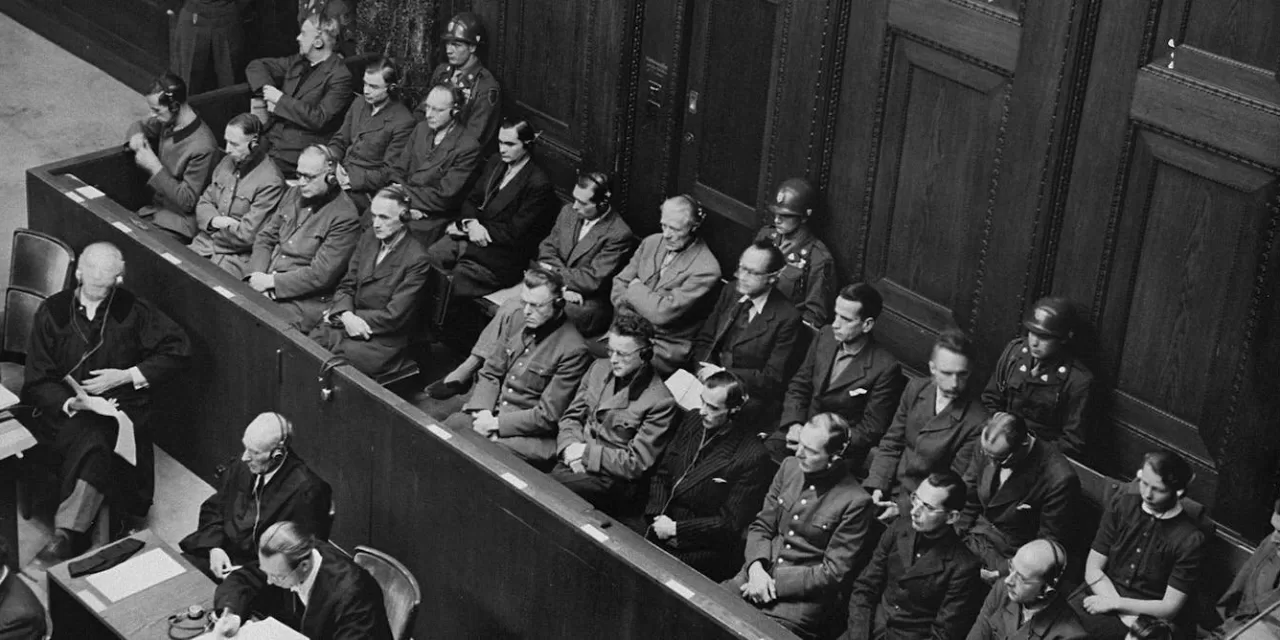Introduction
The Nuremberg Code, established in the aftermath of World War II, remains one of the most significant milestones in the development of medical ethics. Originating from the trials of Nazi officials in Nuremberg, Germany, in 1947, the Code set forth principles that continue to shape the ethical landscape of medical research and human experimentation. While its origins are rooted in the horrors of war crimes, the Nuremberg Code has since transcended its historical context to become a cornerstone of bioethics, emphasizing the protection of human rights in medical research.
Historical Context: The Nuremberg Doctors’ Trial
In the aftermath of World War II, the world witnessed the prosecution of Nazi officials charged with war crimes and crimes against humanity. Among these trials, the “Medical Trial” stands out as a pivotal moment in the history of bioethics. Twenty Nazi physicians and three administrators were tried for their involvement in inhumane and lethal human experiments conducted in concentration camps. These experiments included freezing prisoners in ice water, exposing them to simulated high-altitude conditions, and infecting them with deadly diseases like malaria and typhus. The experiments often resulted in the death of the subjects, revealing the horrific extent of the Nazi regime’s disregard for human life.
The lead prosecutor, Telford Taylor, an American lawyer and U.S. Army general, argued that these experiments were more accurately classified as murder and torture than anything related to the practice of medicine. The evidence, including testimony from expert witnesses and camp survivors, led the judges to agree. On August 20, 1947, the verdicts were handed down, and the American judges drafted what is now known as The Nuremberg Code.
The Nuremberg Code: Ten Principles for Ethical Research
The Nuremberg Code is composed of ten key principles designed to protect human subjects in medical research. The first and most famous of these principles declares, “The voluntary consent of the human subject is absolutely essential.” This principle emphasizes the importance of informed consent, ensuring that individuals participating in research are fully aware of the risks involved and voluntarily agree to participate.
In addition to voluntary consent, the Code outlines several other critical requirements, including the right of subjects to withdraw from an experiment at any time, the necessity of conducting research only by qualified investigators, and the importance of ensuring the health and safety of the subjects. These principles established a framework for ethical research that prioritizes the rights and welfare of human subjects over the interests of science.
Impact and Influence: Shaping the Field of Bioethics
The Nuremberg Code not only established guidelines for ethical research but also laid the foundation for the field of bioethics. By framing the scientist-subject relationship in terms of human rights, the Code marked a significant shift away from the paternalistic model of the Hippocratic Oath, which primarily focused on the physician’s duty to act in the best interest of the patient. Instead, the Nuremberg Code emphasized the responsibility of researchers to respect the autonomy and dignity of human subjects.
Under President Dwight D. Eisenhower, the U.S. Department of Defense adopted the Code’s principles in 1953, further solidifying its influence. The Code’s emphasis on informed consent is also reflected in the United Nations’ International Covenant on Civil and Political Rights, which declares that “no one shall be subjected without his free consent to medical or scientific experimentation.”
However, not all physicians readily embraced the Nuremberg Code. Some sought to distance themselves from the Code because of its judicial origins and its association with the Nazi physicians on trial at Nuremberg. In response, the World Medical Association, established after the Nuremberg Doctors’ Trial, formulated its own set of ethical guidelines known as the “Helsinki Declaration.” Unlike the Nuremberg Code, the Helsinki Declaration permitted exceptions to informed consent in cases where the physician-researcher believed that silence was in the best medical interest of the subject.
The Nuremberg Code in the Modern Era: Challenges and Controversies
Despite its historical significance, the Nuremberg Code faces new challenges in the modern era. Advances in science and technology have introduced new ethical dilemmas that the Code’s original framers could not have anticipated. For instance, the debate surrounding “gain-of-function” research, which involves enhancing the lethality of viruses or bacteria to study potential countermeasures, raises questions about the ethical boundaries of scientific inquiry. Critics argue that such research poses a significant risk to humanity and should be outlawed altogether.
In addition to gain-of-function research, emerging technologies such as artificial intelligence and climate engineering present potential threats to human survival. The question of who should decide whether species-endangering research should be conducted, and on what basis, remains a pressing concern. Some argue that multinational, democratic debate and approval should be required for such research, ensuring that the survival of humanity is prioritized.
Conclusion
The Nuremberg Code, born out of the atrocities of World War II, continues to serve as a vital safeguard for human rights in medical research. As we approach the 100th anniversary of the Code, it is essential to recognize its enduring relevance in a rapidly changing world. While the Code may not provide all the answers to the ethical challenges posed by modern science and technology, its principles of informed consent, respect for human dignity, and protection of vulnerable subjects remain as crucial today as they were in 1947. As we navigate the complexities of the 21st century, the Nuremberg Code will continue to guide us in ensuring that the pursuit of scientific knowledge does not come at the cost of our humanity.











